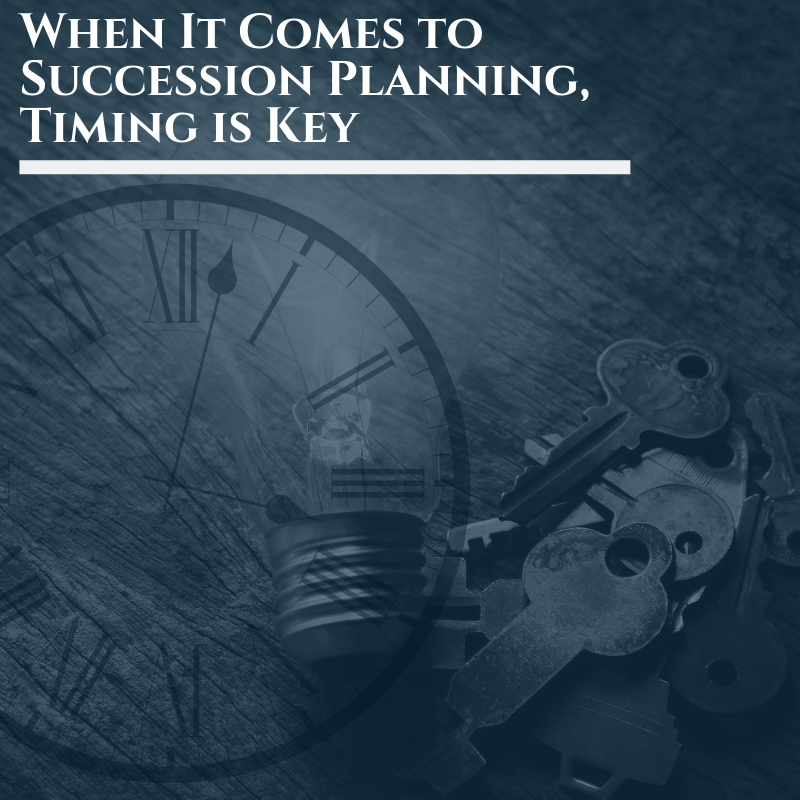By Andrew Baron, CFP®
You have built a business. You have overcome obstacles and celebrated successes. With your continued efforts, your business has provided for your family and your employees alike. When considering the sale of your business, the timing can present complications affecting others both directly and indirectly.
First, the timing of the sale to reap the most value is prudent. A small business can tie up a considerable amount of wealth, whether it be hard assets and equipment or the goodwill of the business. In either case, these are substantial assets created by building a profitable dental practice. However, as with many assets, the value fluctuates. It is common for the prospective buyer to review business records for the previous three years. The buyer would like to see an upward trend, considering they are purchasing the future income of your business. For instance, increasing your fees while you continue to operate can assist both parties. For the seller, it demonstrates growth, allowing the seller to demand a premium for the business. This also provides the buyer with a higher baseline without having to raise fees themselves. Retention rates may be higher, as patients are more likely to tolerate fee increases from their trusted provider than a newcomer. Furthermore, new technologies to take on capacity and generate additional revenue would increase the value of a practice. Conversely, attempting to sell a practice after a critical illness or accident can prove difficult and the sale price may need to be severely discounted to attract a buyer.
Timing comes into play when choosing to announce the transition. Confidentiality is critical while you are selling your business. You should refrain from informing both staff and patients until the deal is finalized. This in turn, will preserve a higher retention rate of staff and patients. Staff may be tempted to look for alternative jobs if they are uneasy at the prospect of a new owner. Patients also may be apt to seek out a new provider. Losing patients and staff can cripple the business in the short-term. This may result in lost revenue and potentially reduce the sale price as well. Having the selling dentist remain in the practice during a transition can smooth out the process, as the selling dentist can oversee any “hiccups.”
Also crucial is timing the sale to correlate with your entire financial plan. Even if you are mentally ready to retire, there may be reasons to delay. By working slightly longer, your Social Security payment could be substantially larger. First, by delaying benefits past your full retirement age, you are able to increase benefits by 8% annually through age seventy. Additionally, because Social Security averages the highest thirty-five earning years, you can increase your average earnings used to calculate those benefits by working more than thirty-five years. Odds are you are making more today than you were thirty-five years ago. These higher income years replace the lower earning years providing for an overall higher benefit.
Timing the sale can be a complicated process that requires careful planning and oversight. Adding to the complexity are the consequences of getting it wrong. Developing a succession plan early will help alleviate some of the concerns when the time comes to sell the business.
Please contact Andrew Baron, CFP® with any questions or comments at [email protected] or (607) 936 – 3785 extension: 188







